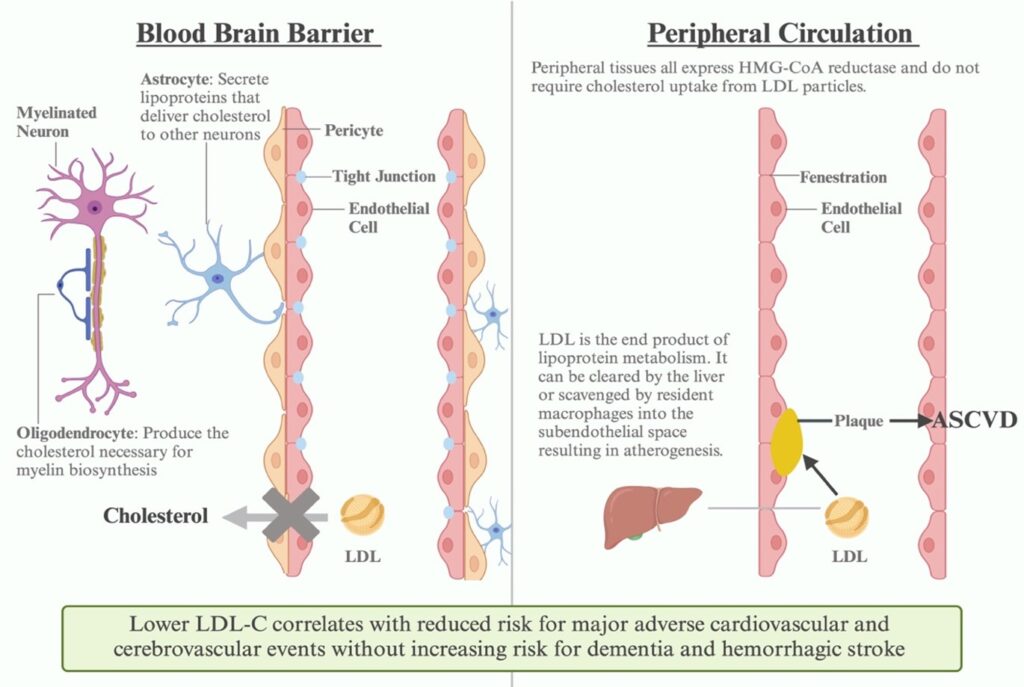A groundbreaking study has revealed a significant link between low-density lipoprotein cholesterol (LDL-C) levels and the risk of developing dementia, including Alzheimer’s disease. The findings suggest that maintaining lower LDL-C levels could play a protective role in cognitive health, reducing the likelihood of neurodegenerative diseases later in life.
Lower LDL-C, Lower Dementia Risk

Researchers analyzed data from 192,213 individuals with low LDL-C levels, creating 108,980 matched pairs to compare health outcomes. The results were striking:
- Individuals with LDL-C levels below 1.8 mmol/L (70 mg/dL) had a
- 26% lower risk of all-cause dementia
- 28% lower risk of Alzheimer’s-related dementia
- Compared to those with LDL-C levels above 3.4 mmol/L (130 mg/dL), lower cholesterol appeared to offer substantial neuroprotection.
Statins Enhance the Protective Effects
Another key finding was the role of statins—cholesterol-lowering drugs commonly prescribed for heart health. Among individuals who maintained LDL-C below 1.8 mmol/L, those who used statins experienced an additional:
- 13% reduction in dementia risk
- 12% reduction in Alzheimer’s risk
This suggests that statins may further reduce the risk of cognitive decline, possibly by improving vascular health, reducing inflammation, or preventing plaque buildup in the brain.
Understanding the Cholesterol-Brain Connection
Cholesterol is essential for brain function, as it supports cell membranes, myelin production, and neurotransmitter signaling. However, excessive LDL-C, often called “bad cholesterol,” has been linked to:
- Atherosclerosis (narrowed arteries), which reduces blood flow to the brain.
- Chronic inflammation, a key factor in neurodegenerative diseases.
- Increased beta-amyloid plaque formation, a hallmark of Alzheimer’s disease.
By maintaining optimal cholesterol levels, individuals may protect both their heart and brain, potentially delaying or preventing dementia onset.
Implications for Brain Health and Preventative Strategies
This research underscores the importance of cholesterol management in dementia prevention. Some key takeaways include:
✅ Routine cholesterol screening to monitor LDL-C levels.
✅ Heart-healthy diets (such as the Mediterranean diet) to maintain balanced cholesterol.
✅ Regular physical activity, which supports both heart and brain function.
✅ Consulting a doctor about statin therapy for those at risk of heart disease and cognitive decline.
Final Thoughts
The link between cholesterol and dementia is a crucial area of research, providing hope for early interventions to preserve cognitive function. While genetics and lifestyle factors contribute to dementia risk, maintaining healthy LDL-C levels—either through diet, exercise, or medication—could be a powerful strategy to safeguard brain health in the long run.